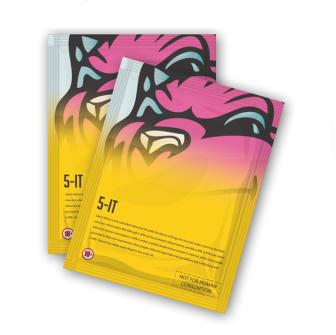 Ahead of the International Day to Combat Drug Use and Illicit Traffic, the European Commission proposed the EU-wide ban on '5-IT', a synthetic substance with stimulant and hallucinogenic effects.
Ahead of the International Day to Combat Drug Use and Illicit Traffic, the European Commission proposed the EU-wide ban on '5-IT', a synthetic substance with stimulant and hallucinogenic effects.
The Commission urged EU Member States to prevent the free spread of this drug in Europe by subjecting it to control measures.
5-(2-aminopropyl)indole (also known as 5-IT) is already subject to control measures in at least seven EU countries (Austria, Cyprus, Denmark, Germany, Hungary, Italy and Sweden) and in Norway .
Its use has been linked to 24 deaths in four EU countries between April and August 2012 alone.
"5-IT is a harmful psychoactive substance and is known to kill," said Vice President Viviane Reding, European Commissioner for Justice. 'I urge Member States to swiftly adopt the Commission's proposal to subject it to criminal law measures'.
To date, at least 24 deaths where 5-IT was detected in samples have been reported in four Member States (Germany, Hungary, Sweden and the United Kingdom). postmortem, alone or combined with other substances. A further 21 non-fatal intoxications associated with this new psychoactive substance were reported.
The Commission proposal adopted yesterday bans the production and marketing of 5-IT, making it subject to criminal sanctions across Europe. The governments of the Member States must now decide on the adoption of these measures, through a qualified majority vote in the Council.
New legislation on psychoactive substances
In recent years, new psychoactive substances have emerged at an unprecedented rate: 73 of these substances were notified last year, ie three times the number of substances notified in 2009.
“The rapid spread of new psychoactive substances is one of the greatest challenges in drug policy. With an internal market without borders, we need common EU standards to solve this problem,” added Vice President Reding.
"I intend to bring forward, in the coming months, tougher EU legislation on new psychoactive substances, so that the Union can respond more quickly and effectively."
Meanwhile, some 40 civil society organizations active in the fight against drugs met with the Commission on 24 and 25 June to discuss how to respond to the new challenges in the fight against drugs.
The EU Civil Society Forum on Drugs provides the Commission with information on important drug policy issues, including how to reduce drug demand, and participates in the international debate on the effectiveness of the global drug control system .
Background
5-(2-aminopropyl)indole (5-IT) is a synthetic substance that appears to have stimulant and hallucinogenic effects. It has been found mainly in powder form, but also in pills and capsules, and is available on the Internet and in head shops, usually marketed as an 'experimental chemical substance'.
It has also been detected in samples of a legal psychotropic product called 'Benzo Fury' and in ecstasy-like tablets.
A risk assessment carried out by the Scientific Committee of the European Monitoring Center for Drugs and Drug Addiction (EMCDDA) revealed that 5-IT can have serious harmful effects, such as tachycardia and hyperthermia, and can also cause mydriasis, agitation and tremors.
5-IT has no established therapeutic value or other known legitimate purposes. It is a controlled substance in at least seven EU countries (Austria, Cyprus, Denmark, Germany, Hungary, Italy and Sweden) and Norway.
The Commission proposal follows on from a risk assessment and control process for new psychoactive substances created by Council Decision 2005/387/JHA. The Board requested 5-IT's risk assessment on 22 January 2013.
In 2010, the Commission proposed and achieved an EU-wide ban on mephedrone, a drug close to ecstasy (MEMO/10/646) and, in early 2013, on 4-MA, a drug close to amphetamine.
On October 25, 2011, the European Commission announced a review of EU rules on new psychoactive substances, which reproduce the effects of dangerous drugs such as ecstasy or cocaine and are of increasing concern in Europe. A legislative proposal is due to be presented in 2013.
The EU identified a record number of 73 substances of this type in 2012, against 24 in 2009. Access to these drugs is expanding on the Internet and is spreading rapidly in many Member States, which are facing great difficulties in preventing the your sale.
According to a 2011 Eurobarometer survey, new substances that reproduce the effects of illicit drugs are increasingly popular: 5% of young Europeans say they have already used this type of substance.
Consumption data are highest in Ireland (16%), followed by Poland (9%), Latvia (9%), United Kingdom (8%) and Luxembourg (7%).
The Eurobarometer revealed that in the 27 EU Member States the vast majority of young people aged between 15 and 24 are in favor of banning these substances.


















Comments